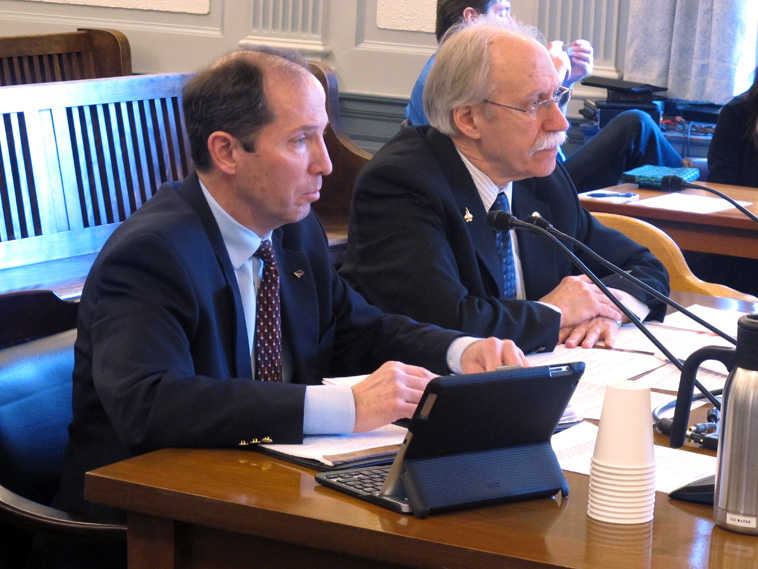JUNEAU — Borough mayors want to ensure they have a say on terms that will affect local communities and be negotiated by the state in pursuit of a mega-liquefied natural gas project.
An agreement signed by officials with the state, Alaska Gasline Development Corp., TransCanada Corp. and the North Slope’s major players — BP, ConocoPhillips and ExxonMobil Corp. — spells out broad terms for pursuing the long hoped-for project. Included in the agreement is a provision that says, subject to consultation between the state and local governments, payments in lieu of property tax would be paid by the companies on each component of the project. It would be on a unit rate of throughput, such as cents per thousand cubic feet of gas. Also subject to consultation would be a series of impact payments paid by the companies to help offset increased service and other costs borne by the state and local governments during construction.
The mayor of the Kenai Peninsula Borough, Mike Navarre, told the Senate Finance Committee on Thursday that consult is not a strong word.
“We would rather have agreement in that process and what that structure looks like or, if not agreement in it, then we would like to negotiate a deal on our own behalves,” he said.
The mayors are seeking greater assurances for the level of input they will have as the process moves forward.
Committee co-chair Pete Kelly, R-Fairbanks, said the issues raised by the mayors need consideration as the panel works on the bill. The bill is likely to advance from committee early next week.
Sen. Anna Fairclough, R-Eagle River, said she wants to ensure that, if any language is added to the bill, the state retains enough flexibility in its ability to negotiate.
Navarre said he thinks there’s agreement in wanting a project. But just as there’s been discussion about the state and companies being aligned in moving forward, he said there should be alignment between the state and local governments because “it’s a significant change from where we’re at now.”
SB138, from Gov. Sean Parnell, would help set the state’s equity stake in the project and allow for the project to move into a phase of preliminary engineering and design. It’s an early phase — it’s not even known yet if a project will be built — but it would allow the state to negotiate project-enabling that would be brought back to the Legislature for approval.
Some lawmakers have advocated including in the bill clear limits on what is and isn’t on the table. Senate Minority Leader Hollis French, D-Anchorage, for example, has said oil taxes should not be included in the negotiated contracts.
The main areas of concern expressed by Navarre and Fairbanks North Star Borough Mayor Luke Hopkins were on the payments in lieu of taxes and ensuring that existing oil and gas properties, such as the trans-Alaska pipeline system, from which communities derive taxes currently, are not affected.
The two, along with Valdez Mayor Dave Cobb and North Slope Borough Mayor Charlotte Brower wrote the governor last month, expressing their concerns.
In testimony Thursday, Brower said a subsidiary of the Alaska Gasline Development Corp., which would be created under the bill to help advance the project, should not receive the tax exemptions afforded the corporation for a smaller, in-state gas line project.
On the issue of municipality participation, she said perhaps local governments could get access to gas and revenues by having an ownership stake in a part of the project.
Mike Pawlowski, a deputy Revenue commissioner, told reporters the administration always envisioned a “full, robust, collaborative” working relationship with municipalities. He said the agreement signed by the state and companies was built on the premise that it has to work for all parties to move forward.
Pawlowski said that, if the project moves forward, the first question for municipalities will be how they want to work together.
Online:
SB138: http://bit.ly/MRZql3

